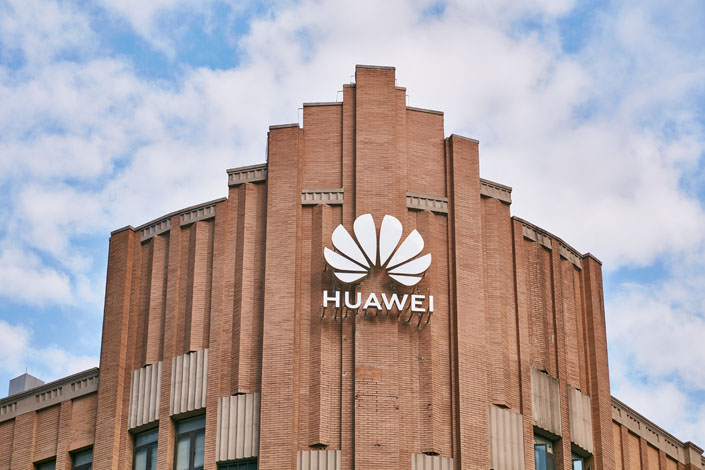Smarting From Dismal Phone Sales, Huawei Looks to Logistics and Energy

Huawei Technologies Co. Ltd. is further expanding its business beyond its core telecoms gear and electronics offerings into the logistics and energy industries, just a few months after the firm opened a lab dedicated to coal mining technology.
The Shenzhen-based company has created four new divisions known as “corps,” a Monday internal note reads. Xun Su will be CEO of the Customs and Port Corps, Ma Yue of the Smart Highway Corps, Charles Yang of the Data Center Energy Corps, and Chen Guoguang of the Smart Photovoltaic Corps. The last two will report to Hou Jinlong, the president of Huawei Digital Power Technologies Co. Ltd.
According to public information, Xun is the former president of the Digitalization and Technical Service Department of Huawei Enterprise BG, Ma is the former vice president of the Huawei Enterprise Business Group, Yang is the former president of Huawei Middle East, and Chen is the former president of Huawei Smart PV Business.
Each corps will act as an independent business unit, connecting research and marketing teams, a source inside Huawei told Caixin. In the past, the company has tended to keep the two functions apart.
Such a change marks the tech giant’s latest effort to stem financial losses caused by U.S. sanctions against its once high-flying smartphone business. Following the blacklisting, the embattled firm posted its sharpest drop in quarterly sales, a 38% decline in sales to 168.2 billion yuan ($26 billion) during the second quarter, according to Bloomberg calculations.
Ren Zhengfei, the founder and CEO of Huawei, said in a February interview that his firm has established joint labs in coal mining, steelmaking, automaking, and airplane manufacturing, with the intention of applying its electronic systems and software computing systems in the various industries.
“It’s just like Microsoft provides information services to aircraft engine manufacturers,” Ren added. “Microsoft won’t make aircraft engines itself. Huawei won’t dig coal either.”
The Shenzhen-based company in mid-September launched an operating system that was specifically designed for the coal mining industry, which it hopes can take the place of Linus, Unix, and Windows operating systems in mining equipment.
The Trump administration began targeting Huawei with various sanctions back in 2019, gradually cutting off the telecom giant’s access to supplies of high-tech semiconductors, which are key to smartphone production.
Huawei’s global smartphone sales have been plunging ever since. In this year’s first quarter, it exited the top five global smartphone brands, according to data released by research firm Gartner in April.
Even with the newly-released P50 smartphone series, the telecom giant still hasn’t returned to the leaderboard. Instead, Samsung, Xiaomi, Apple, Oppo, and Vivo ranked top five global vendors in the second quarter, Gartner’s most recent data shows.
Honor, the smartphone brand that was cut loose from Huawei last year, has meanwhile been rebuilding its presence in the country’s competitive smartphone market. It notched a 15% market share in China in August, a huge jump from 3% in November, when Huawei sold it to a Chinese government-backed consortium.
Denise Jia contributed to the story.
Contact reporter Manyun Zou (manyunzou@caixin.com) and editor Heather Mowbray (heathermowbray@caixin.com)
Download our app to receive breaking news alerts and read the news on the go.
Get our weekly free Must-Read newsletter.

- PODCAST
- MOST POPULAR






